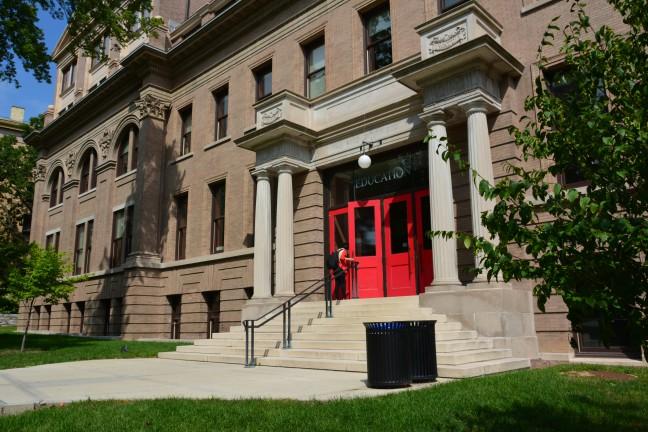The eight month cycle of surviving on microwavable food, writing term papers and drinking deep into Saturday mornings has begun. With a life like that, who wouldn’t want to go to college? But as the price tag for this student lifestyle becomes more and more expensive, concern over the significance of attaining a college degree is becoming more prevalent than ever before.
Many people argue the cost of going to college is not worth what students get out of their four-year experience. The College Board reports that the average tuition for 2013-2014 totals to $8,893 for in-state residents at public colleges and $22,203 for out-of-state students. Keep in mind that these numbers exclude many other expenses such as housing, food, textbooks and all other things an average college student might need. Fortunately, the College Board took all these expenses into account to estimate that a “moderate” in-state public college budget came to $22,826 and a “moderate” private college budget came to $44,750. When you multiply this number by four you’ve added up to more than $90,000 for only a “moderately” priced in-state public college.
With no guaranteed job at the end of college, this can be quite the hefty debt for those taking out college loans. And then there is the reality that some of the world’s most successful individuals such as Bill Gates, Steve Jobs and Mark Zuckerberg didn’t even need a degree.
Unfortunately, the odds of skipping college and ending up a billionaire like those three men are slim. Don’t get me wrong, a decent degree will definitely put a dent in the bank accounts, but the rewards of a college education are infinite and immeasurable.
Perhaps the most apparent purpose of attending college is for the education and knowledge a student will gain from their professors. However, your classes merely scratch the surface of the potential benefits you gain from attending college. CNN Money reports that workers with bachelor’s degrees earn about $1 million more over a lifetime than those with merely high school diplomas. I’d take the extra $900,000 (when $100,ooo of debt is subtracted) over a lifetime. Additionally, those with college degrees are less likely to become unemployed when compared to their high school educated peers. In total, the average rate of return for a bachelor’s degree has been a steady 14 percent to 15 percent for the past decade, which Federal Reserve Bank of New York economists Jaison Abel and Richard Deitz argue easily surpass the threshold for sound investment.
If the only thing you get out of college is a degree, then you are doing it wrong. A key to finding a job and being successful in any profession is knowing the right people and building strong relationships. Networking is a skill that is critical for college students to learn and hone while still in college. At the University of Wisconsin, nearly all major departments have a specific career service dedicated solely to their group of students. Additionally, most schools offer hundreds of clubs and activity groups that everyone can explore. These organizations often provide members with the opportunity to meet and interact with professionals or experts in their club’s focus.
And hey, maybe you will even find your soul mate. A Business Insider source shares that 28 percent of married couples attended the same college. If you play this numbers game, then one out of every four students will meet their future spouse during their time at college. I don’t know if you can put a price on love, but for those who do discover their soul mate then I’d guess they would find their rate of return on their college investment to be immeasurable.
College isn’t simply dumping nearly $100,000 into textbooks and lectures. College is a four-year process full of unique and individualized interactions and experiences that shape and mold students into the adults they end up becoming. Simply put, the college experience has no price tag.
Ryan Smith ([email protected]) is a junior majoring in strategic communications.














